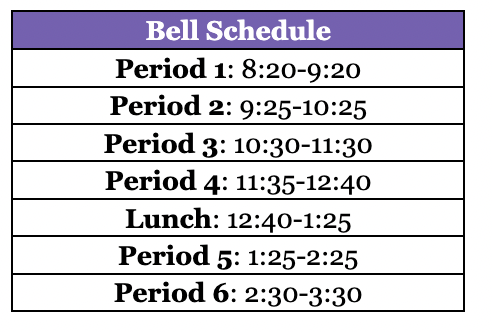This year I was entering eleventh grade, and I had never been filled with more dread. Terrified of my incoming workload, I was not excited for the school year to start. But on the first day of school, as I strolled into my Pre-Calculus class, I was met with surprise. After reading a book about how students learn, my teacher, Mrs. Sandtveit had a mind-altering realization. She had decided that Pre-Calculus will have no math homework this school year! I became so emotional with this announcement, I almost cried of joy. Although I was ecstatic, I was also curious about the extent of this decision. What had gone into this drastic decision? Was this decision implemented in other math courses at Berkley? And most importantly, how will this change affect my learning? To get answers, I talked to Mrs. Sandtveit.
Why did you decide to have no math homework?
After reading a book called “Building Thinking Classrooms in Mathematics” by Peter Liljedahl during spring break last year, I was convinced to take away math homework. The book talked about the issues with homework. It stated that there are four types of students regarding math homework. The first type just doesn’t do it, the second type cheats, the third type gets help from a tutor, and the final type legitimately tries to complete the homework on their own. I mostly saw kids acting as the first three types over the years. The intention of homework is to get more practice, but most kids complete it just to get it done or they don’t do it at all. So if we could build math homework into class time, more students will ask questions and get the practice that they need. Also, students are so busy spending seven hours a day at school, so having to do more at home is an awful lot.
How does the math department make these decisions?
We have conversations as a group, and then usually split off to try different things. For example, the geometry classes will try one thing while the algebra classes are trying another. After seeing how they worked out for our class, we come back together as a group and share what worked and what didn’t work in order to decide what to do for the following year.
Has the class been structured differently compared to past years?
Yes. We are doing more vertical work spaces, which is an idea also mentioned in the book. Vertical learning involves students standing up and completing assignments on the whiteboards on the wall with their groups. It engages people a lot more and the act of standing up increases collaboration.
What results do you hope to achieve with this implementation?
I just want people to become better thinkers. I don’t want them to just mimic procedures, I want them to think for themselves and know that they can figure it out if they stick with it. I will ask students for feedback throughout the year about how they feel regarding these changes, and readjust the class how I feel necessary depending on that feedback.
Are other math classes also not having math homework?
All of the math teachers are at different spots with implementing the book; however, most of them have not taken away all homework in their course. Mrs. Danaher and I went to a summer training conference through Oakland schools to learn more about how to implement the book as much as we can in our classes, so the algebra team is currently trying to eliminate math homework as much as possible.
After hearing from Mrs. Sandveit, I was curious as to how students felt about not having math homework. Junior Gretchen Stief shared her opinion.
“I love not having homework in Pre-Calculus!” Stief began. “I think it is absolutely amazing. There is a lot of pressure taken off of me due to the lessened workload, so this new implementation will definitely help me have a better, stress free school year. I am a little concerned about feeling less prepared for test taking, but I’m not too worried because Mrs. Sandtveit seems like a good teacher.”
While Stief feels pretty ecstatic about this change, I was curious if another student had a different opinion. I heard from Junior Marlen Toma to get more perspective.
“In pre-calculus, not having math homework is making me a little worried for upcoming tests,” Toma started. “I feel as though I will be less prepared which makes me a little anxious. Also, because I’m a junior, I am starting SAT prep, so I am concerned that I will also be less prepared for the math section of the SAT due to the lack of math practice in pre-calc,”.
Regardless of the controversy over this topic, I am personally very pleased with having no math homework. Though many feel worried about feeling unprepared for unit tests, I feel that having no homework will give me more time to study for the tests. But in reality, only time will tell how this will affect our learning.









